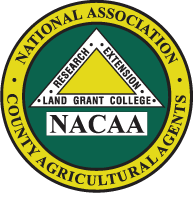A HANDS-ON WORKSHOP TO INCREASE GRAZING MANAGEMENT PRACTICES IN ALABAMA
Dillard, S. L.1; Kim Mullenix2; Kent Stanford3; Gerry Thompson4; Josh Elmore5; Kelly Palmer61Extension Specialist, Alabama Coopertaive Extension System, Auburn University, AL, 36849
2Extension Specialist, Alabama Cooperative Extension System, Auburn, AL, 36849
3Extension Specialist, Alabama Cooperative Extension System, Crossville, AL, 35962
4Regional Extension Agent, Alabama Cooperative Extension System, Belle Mina, AL, 35615
5Regional Extension Agent, Alabama Cooperative Extension System, Clanton, AL, 35045
6Regional Extension Agent, Alabama Cooperative Extension System, Brewton, AL, 36426
Abstract:
The Alabama Grazing Academy is a hands-on workshop focused on assisting livestock producers with intensive grassland management. From November 2018 to September 2019, three workshops were conducted at various locations throughout Alabama. These included the Tennessee Valley Research and Extension Center (North Alabama), the Chilton Research and Education Center (Central Alabama), and a producer farm in Escambia County (South Alabama). A total of 65 producers attended the workshops, 77% of participants being male and 23% being female. Participants returned 62% of workshop evaluations (40 evaluations were returned). The workshops were 1.5 days (North Alabama) or 1 day (Central and South Alabama). The program was shortened after participants in the first field day (North Alabama) indicated they preferred a 1-day class. Topics of the workshops included: forage species and diversity, grazing management, soil structure and fertility, temporary fencing, and forage utilization and efficiency. A total of 5,946 acres were managed by participants and the average farm size was 149 acres (n = 40). Participants also managed 2,245 head of livestock, with 100% of livestock being beef cattle. The average herd size was 56, larger than the average herd in Alabama (approximately 25 head/farm). Participant knowledge increased by 28, 29, and 36% for forage species and diversity, grazing management, and soil structure and fertility, respectively (n = 25; P < 0.0001). After the workshop, 78% of participants indicated they were going to adopt new grazing management methods within the next 12 months. Participants reported a total of average of $3,805/acre economic impact. The total economic impact of this series of workshops was $22,624,530 for cattle producers in Alabama.
